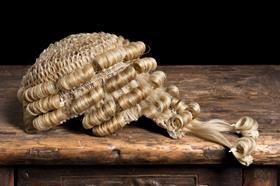A 'brilliantly successful' KC who is chairman of Essex cricket club and defended England Test captain Ben Stokes has been disbarred after lying about studying at Oxford University.

Anurag Mohindru KC, 50 and a member of London’s Foundry Chambers, had denied two charges of professional misconduct for falsely claiming that he studied medicine at Oxford University and that he was a qualified medical doctor.
After a four-day hearing, a five-strong disciplinary panel in London today found that Mohindru had 'knowingly misled' the interview panel when he applied for a tenancy at 23 Essex Street (now 23ES) chambers in 2013 by asserting that he had studied medicine at Oxford University.
Nicholas Ainley, chair of the disciplinary panel, said that Mohindru had told the 'reckless, foolish and completely unnecessary lie' about studying at Oxford University in the tenancy interview and 'doubled down' on it when he later sent a copy of his CV to the chambers. Mohindru, called to the bar in 2004, had had a 'brilliantly successful' career, Ainley said, adding it is 'with genuine regret we find the first charged to be proved'.
Mohindru had denied making any misleading statements and claimed that his CV had been tampered with. The tribunal heard evidence from members of the interview panel who said that Mohindru had told them that he had attended Oxford and said that he had been a cricket 'blue'. The tribunal also saw a copy of a CV stating that Mohindru had studied at Oxford University from 1993-1994. Having heard expert evidence about the degree of skill and knowledge that someone would need to change a document without leaving a trace, the tribunal concluded that it was 'plain beyond doubt that the CV can only be the one Mr Modhindru sent in 2013', which was 'clear corroboration of the evidence of the interview panel'.
Mohindru was cleared of a second charge that he had claimed to be a qualified medical doctor.
In mitigation, Mark Harries KC said Mohindru had made a 'gross error judgment' that had been 'unsophisticated, utterly foolish and unnecessary' and which had 'come back to haunt him' after 12 years. Asking the tribunal to find exceptional circumstances not to disbar him, Harries said that Mohindru’s dishonesty had not been in relation to the provision of legal services or in the course of litigation or court proceedings. He cited testimonials from members of the bar, including junior barristers whom he had 'mentored lead, inspired and supported', as well as a judge who had said that Mohindru was suitable to be a recorder and who hoped that he would go to the bench.
Harries said: 'The contribution that [Mohindru] has made to the bar … arguably outweighs the damage to the reputation of the profession that’s been caused now by the revelation of his dishonesty 12 years ago.'
Highlighting the 'considerable sufferings brought upon himself from his conduct 12 years ago', Harries noted the 'considerable impact on [Mohindru’s] mental health' and 'devastating financial impact' on him and his family. Mohindru has had to sell his house and is living in accommodation provided by the school where his wife works as a teacher and has a 'looming tax bill that he cannot pay'.
Disbarring Mohindru, the tribunal chair said: 'We have listened with care and considered anxiously' the submissions made in mitigation, but 'we find it impossible to come to the conclusion, however much we may wish to, that this amounts to exceptional circumstances'. Ainley said Mohindru’s lie had been 'perpetrated twice over a period of days'. He added: 'We cannot exclude from consideration that he denied the charges – he’s entitled to do that, but he invoked allegations of far more serious dishonesty against others' in his defence.
The tribunal also order that Mohindru pay the Bar Standards Boards’ costs of £54,780.


























